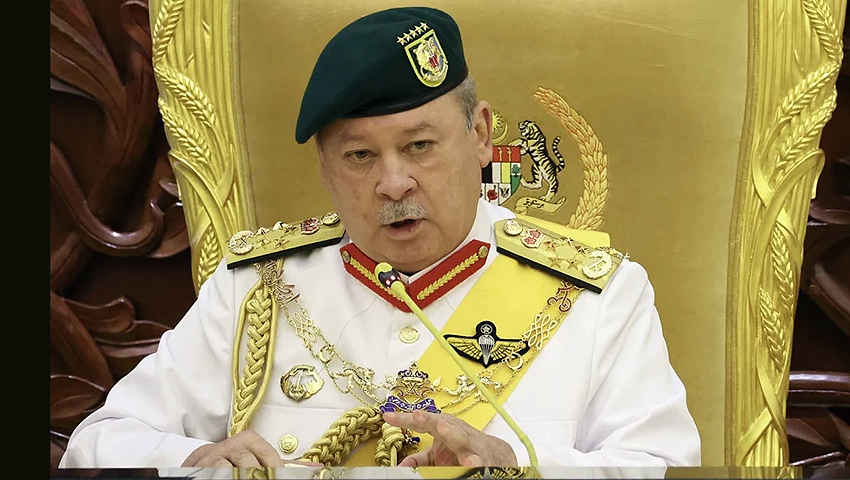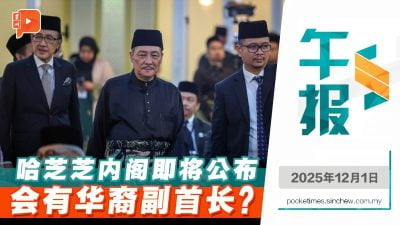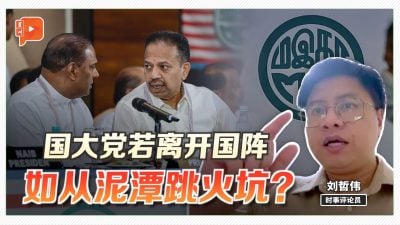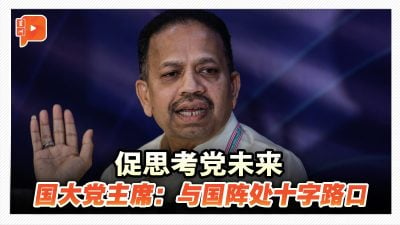
On the first day of Parliament’s opening in 2024, the new King, Sultan Ibrahim ibni Sultan Iskandar, delivered his first speech.
This was much awaited as his son, Tengku Mahkota Johor Tunku Ismail, has given a teaser to how his father would preside as King during a podcast interview on Keluar Sekejap.
The King said he was a newcomer in his position, and thus would take some time to familiarize with the surroundings.
But he also warned that it would not be long before he acts upon what he deemed to go against the welfare of the 30 million Malaysians.
He was keenly aware that Parliament has not been an inspiring place of debates, rather it has been reduced to a laughing stock.
He warned parliamentarians to behave in Dewan Rakyat as the world is watching.
However, the King also said something that caught everyone’s attention: No more change of government until the next general election.
“Everyone must accept the formation of the Unity Government. Those keen on playing politics should wait for the next election,” the King said.
This is a significant statement that has legal and political implications.
Generally, a constitutional monarch does not usually read out the “speech from the throne” to express his personal feelings. The speech is normally prepared by the government of the day and sets out the government’s plans for the session.
However, it is probable that the speech also contained what the King believed in, since there is no explicit requirement for the King to deviate from what the government has prepared. Nor is there any prohibition against the King preparing his speech—either revised from the government’s draft or an entirely new one.
If the speech was indeed written by the government, that means the opposition’s claim that it represented the King’s personal view and not constitutionally valid, is inaccurate.
Any criticism against the King for his speech is also unfounded.
However, if it did represent the King’s views, then it is a sign of how the King intends to chart his tenure for the next five years.
He has demonstrated that he has an independent mind and also the tenacity of deviating from others’ views. He reiterated that his primary client is the Malaysian people.
Additionally, this reading of the speech also brings about multiple political implications.
First, the King’s iteration of no change in government through a coup—like Sheraton Move—further validates the Rulers’ view that political stability is important.
While the PN coalition might think that winning power through the backdoor might still be a viable option, that is already shut down by two successive Kings.
It proves that every ruling elite accepts that a political coup is not beneficial to the country, and we have lost many productive years to rebuild the country and attract investments.
By a King reaffirming the need for stability, it also creates a new convention and expectation.
It is no longer considered a norm for parties that failed to form government to think about triggering a coup to get to power.
Elections serve a purpose and it should be respected.
The King is indicating that he would not think twice to intervene against such a disruptive act. That also means that the Unity Government—and any government in future—will have that security of governing through the full term.
This is a very important prerequisite for governments to take bold actions to reform instead of constantly worrying who will backstab them and defect.
Second, such a speech might also make it harder for PN to gain the trust and respect of the ruling elites.
It is important to recognize that for a coalition to govern, it is not just important to win enough votes and seats in Parliament. The other key constituents like the civil service, agencies, and the Rulers must respect you for you to succeed.
No matter how popular PN gets, it must not lose sight of the lift they require to govern well. By alienating the Rulers—intentionally or not—PN appeared like a group that is hard to work with, and created more hurdles for themselves beyond the elections.
Third, by alienating the Rulers, PN might even lose some of its base voters.
It should not come as a surprise now that the monarchy is still an essential institution for Malay voters.
There are heritage, culture, respect and order that come from the institution that are precious to how voters understand their country. And one of the criteria for assessing whether one is a good Malay leader is to see how they interact and work with the Rulers.
That means, PN’s past acts of trying to overthrow the government through the Sheraton Move and Dubai Move have created enough frustration that even the two Kings, current and the former, have explicitly pointed it out in their speeches.
PN sunk deeper after the King’s speech when PAS’ Takiyuddin Hassan said the speech was merely the King’s personal views.
This could be taken as a criticism against the King tantamount to disrespect in the Malay culture, and might attract a loss of trust among Malay voters.
This is not the first time. In fact, PAS president recently also received a rebuke from the Selangor Sultan for the Nik Elin case.
Such a direct criticism from the royalty is rare against a politician, and it might affect how the voters feel about politicians in PN.
At a time when the King plays a more active part in what he wants to see in the country—more political stability and less ethno-religious tensions—politicians who thrive on backdoor politicking and fueling hate will lose out. PN’s main strategy is being challenged in a massive way.

(James Chai is a Think Tank Chief Researcher and Legal Advisor)
ADVERTISEMENT
ADVERTISEMENT








































